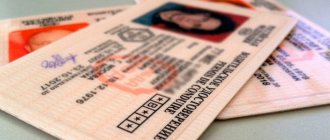How to find out about inheritance
Often close relatives try to hide the fact of death from other potential heirs in order to receive the entire inheritance of the deceased. Especially when it comes to real estate, and other relatives live far away and do not have the opportunity for frequent visits.
In this case, when the actions of relatives do not inspire confidence, you need to:
- Call your relatives at least once a month so that in the event of death you do not miss the deadline for accepting the inheritance;
- If a relative is seriously ill, then it makes sense to contact a notary at his place of residence.
As soon as you find out about the death of a relative, immediately contact the notary office at the place of his last residence. You need to notify the notary about the death of the citizen and present him with the following documents:
- Passport;
- Death certificate of the testator;
- Confirmation of relationship;
- The will, if found.
However, the easiest way to find out about the inheritance is to people close to the deceased who lived with him or were in close contact with him. Therefore, you should always maintain good-hearted relationships with all relatives, and not just with elderly relatives.
How can I find out about inheritance?
To register property provided under the inheritance program, the recipient must contact a notary office or formalize the inheritance in an actual manner. But for this, a person must have basic information that will prevent difficulties in recognizing the details. And among the main problems in this matter we can highlight:
- The heir was not aware that the owner of the property had died.
- The recipient of the property was not informed in a timely manner that there was a will with prescribed rights to it.
- The heir did not know what exactly the deceased had.
Did not have information about the death of a relative
If a person did not know about the death of a relative, and therefore did not enter into ownership rights at the time established by law, then in the case when a person learns about the death of his relative and, accordingly, the existence of an inheritance, then it will be possible to establish justice only through the court. But, as practice shows, this outcome of resolving the issue requires a special approach, since it is not always possible to achieve justice, because in most cases, if a citizen does not have information about the death of the owner, he will not be able to obtain information about the inheritance.
And in 2020, a new rule appeared, which states that information about what kind of inheritance the deceased has can only be obtained by providing a death certificate. Alternatively, a duplicate of the document provided at the registry office can be used, or a copy can be made, which will additionally be notarized.
No information about relatives
If there is no information about the relatives of a deceased citizen, this excludes the possibility of entering into rights to inherit property in accordance with the law. If the relatives do not submit a properly completed application to the notary’s office in a timely manner, then all existing property will be transferred to the state, that is, an escheat inheritance will be formed.
Read also: How to enter into an inheritance and how much it costs
But as an exception, the situation is considered when the testator has drawn up a will, since then the authorized authorities must provide information about the availability of property.
But the will must necessarily contain the following materials:
- Information about the place of residence of the person who can count on receiving the property. In this case, the notary office can easily find the heir. As a result, a notification is sent to the place of execution, which is specified in the will.
- The executor of the will must be indicated, so the testator must initially find the person to draw up a document for him. And that is why making a will during your lifetime can create certain difficulties.
Each situation has its own characteristics, so you should first consult with a notary.
How do I know if I am an heir?
If the testator did not leave a will, the inheritance will be distributed among the legal heirs.
In this case, you need to check whether you are the legal heir of the deceased. If yes, which of these queues are you in:
| First of all | Wife/husband of the deceased, his children and parents; By right of representation there may be grandchildren and other descendants of the heirs indicated above. |
| Second stage | Siblings, grandparents, nephews/nieces; Half-siblings are also allowed |
| Third stage | Blood aunts, uncles and their descendants, i.e. cousins of the deceased |
| Fourth stage (most rare) | Great-grandparents |
| Fifth stage | Children or descendants of nephews/nieces, as well as siblings of grandparents |
| Sixth stage | Descendants (children and grandchildren) of nephews/nieces, children of cousins, children of grandparents' siblings (great aunts and uncles) |
| Seventh stage | Child of wife or husband (stepson or stepdaughter), stepfather, stepmother |
| Eighth stage | Disabled persons who were dependent on the deceased for a period of at least 12 months before his death or who lived with him, and who are not included in the first seven lines of inheritance. |
If you are on this list, then you have the right to know who the heirs of the deceased are and other information on the inheritance matter. If you do not fall into one of these categories, then the notary will not be able to provide you with information on the case.
Unfortunately, in Russia there is no provision for the creation of a special database of people who have drawn up and certified their will, which significantly worsens the situation of the heirs.
If the testator left behind a will, the notary is obliged to notify all heirs about it. There is no need to find out anything additional.
Inheritance by law
The Civil Code of the Russian Federation provides for the following inheritance procedure:
- The date of death of the testator is considered the date of opening of the inheritance, when the notary opens the inheritance case.
- Within 6 months from the date of opening of the inheritance, all applicants for it must contact a notary with an application to enter into the inheritance (if there is no will). In accordance with the will or legal norms, the notary formalizes the entry into the inheritance (Here you can find out about the necessary documents for opening an inheritance case with a notary);
- If after six months the heirs have not shown up, then the notary prepares documents stating that the property is escheated. In this case, it is transferred to the state - to local governments.
How to find out whether there was a will for an apartment
The main difficulty after the death of the testator is to find out whether there was a will. In addition, almost immediately the deceased has many relatives who want to know about the inheritance and heirs, secretly hoping that they will be able to grab a part of it.
The main obstacles to making a will:
- The desire of unscrupulous relatives who found the will earlier to conceal it or destroy it;
- Lack of certainty as to whether there was a will at all;
- The executors of the will and other persons knowledgeable about the document cannot reveal the secret of the heir and his existence in general.
To find out whether there was a will, close relatives try:
- Check the personal belongings of the deceased;
- Find it in the apartment of the deceased;
- Contact a lawyer or notary with whom the testator worked during his lifetime;
- Talk to other close people of the testator.
As a rule, the notary who certified the will recommends that the testator store it in one of the following ways:
- Store at home in a sealed envelope;
- If the will specifies persons who do not live with the testator, then it is more appropriate to store the will in a notary's office.
A will can only be opened after the death of the deceased and in the presence of witnesses.
In any case, the will is always drawn up in two copies, in case of unlawful actions on the part of the persons concerned. Therefore, it is advisable to find out during the testator’s lifetime which notary services he prefers to use, so that with a 99% probability, after the death of the testator, he can contact the right specialist.
How to find out about inheritance and check inheritance
Lack of information about relatives deprives a citizen of the opportunity to inherit according to the law. If none of the relatives submits an application to the notary, then the property passes to the state (escheat).
How to find the heirs of a deceased person
It happens that a person was close to the deceased, but, as fate would have it, lived far from him at the time of death. It is not always possible to go to another city to contact a notary office there. Then how can you find out about an inheritance in another city?
In any case, only the notary who deals with it can give a qualified answer about a specific inheritance matter. It is worth considering that this information is not public. Information is provided only if there is a reason for it. These are family ties with the deceased or, if the person of interest was a dependent of the testator.
If the property was transferred to the state, it will be returned to the heir in its original form. When this is not possible (for example, if the apartment under the will has already been sold), the heir will receive financial compensation.
How to find out if there is a will for inheritance - where to look, after the death of a relative, whether the deceased left
If the testator's area of residence is large, then it can be divided among several notaries. The division, as a rule, occurs by street or by surname. You can contact any notary in a particular area to obtain the necessary information.
- To your request you need to attach copies of the same documents that were needed to search with a notary:
- Passport.
- A document confirming the fact of death.
- Papers establishing your relationship with the deceased.
How to submit a request to the notary chamber?
To find out about inheritance, you can contact:
- To close relatives of the deceased, neighbors or friends to find out about the death of the testator;
- To the notary whose services the deceased preferred to use or at the place of his last residence;
- To the notary's office.
To find out about the inheritance and death of the testator in a short time, you can directly contact the notary chamber of the city where the deceased lived.
The Notary Chamber is the highest governing body for all notaries operating in a constituent entity of the Russian Federation. This is where they send data on all registered documents, including wills.
There are two ways to submit a request for a will:
- By mail, sending photocopies of documents (passport, death certificate, etc.) and an application to search for a will;
- Personally, by arriving at the notary chamber, which controls the activities of notaries in the city of residence of the testator.
To apply you will need to collect the following documents:
- Personal passport, if possible a copy of the deceased’s passport;
- Death certificate of the testator (obtain from the Civil Registry Office);
- Proof of relationship: Birth certificate;
- Marriage certificate;
- Other documents.
If you start collecting papers in advance and submit a request to search for a will as early as possible, the more time the heir will have to formalize the acceptance of the inheritance.
How to find out about inheritance via the Internet
» How to divide an inheritance September 09, 2020
How to check the certificate of inheritance?
A certificate of inheritance is considered a document that confirms the authenticity and legal power of the heirs to receive property that belonged to the deceased person. This is stated in the Civil Code of the Russian Federation.
You can learn about the possibility of obtaining an appropriate certificate from notarial employees who deal with similar issues, conduct and open notarial affairs. For the procedure for accepting property, the heir needs to find out what is required for registration and write an application. Afterwards, it is certified by a notary, which subsequently gives the heir full right to own the property and the right to dispose of it at his own discretion and desire.
Checking the certificate of inheritance according to the law
To verify the certificate of right to legally own the inherited property, the potential heir must write a written statement to the notary at the location where the will was opened. In your application, ask for a certificate. Next, the notary opens the case and checks and establishes the legality of the will and the presence of family ties between the heir and the deceased.
If, in view of the ongoing check, it has been established that a citizen can obtain the use of the property of the deceased, he has the right to initiate the process of transferring the property due to him. To do this, you need to collect a package of required documentation and contact a specialist to have it certified.
How to check inheritance online?
Checking the availability and receipt of inherited property is carried out directly from the notary; for this it is necessary to collect all the necessary documents to confirm the legal validity of the inheritance of the property of the deceased. Online you can only consult on issues related to the law, how to obtain and prove the legality of ownership. Therefore, checking the certificate of title to inherited property online is impossible, since for this procedure you must visit a notary.
How to find out if there is an inheritance abroad?
To check whether you have an inheritance abroad, you need to maintain contact with all relatives so that if necessary, you are aware of an open will. If the document is drawn up in your name, then according to the data that will be indicated there, the notary who is involved in this inheritance matter will find you; this is part of his direct job responsibilities.
Also, relevant issues are dealt with by special boards that verify and open inherited property abroad. Thanks to such a body, anyone can find out whether he has inherited property outside his country. In addition, the represented institution is searching for heirs in order to transfer to them a certificate of inheritance.
The procedure for receiving and registering an inheritance abroad can be carried out in the following ways:
- According to the Civil Code
- According to the law of the country where the inherited property is located
- According to the law of the locality in which the testator died.
- Seek help from a real estate agency for further in-depth verification and study of the inheritance matter
- You can check this circumstance when purchasing an apartment through a notary, checking all the documents
- You can also carry out this procedure by contacting the immediate heirs in order to review and check the documents for authenticity and legal force.
- +7 Moscow and region.
- +7 St. Petersburg and region.
- +7 all regions of the Russian Federation.
- staying for treatment in a hospital facility from which you could not leave without the permission of the doctors. In this case, you can provide an extract from the hospital
- serving in the army, from where it is also impossible to leave without permission
- living abroad
- a valid reason would be if you had no way of knowing that you were left an inheritance. If no one informed you about the death of a relative.
- passport (or other identification document)
- death certificate of a relative (if you do not have the original document, you can provide a copy or an extract from the registry office. Perhaps other heirs have already submitted a package of documents to the notary, among which was the death certificate of the testator - if so, it is stored in the inheritance file in the notary's office )
- a document confirming the relationship with a deceased relative (birth, adoption, marriage certificate).
- chief physician of the medical institution where the testator was treated
- director of the nursing home where the testator stayed
- head of the correctional institution where the testator served his sentence
- commander of a military unit, captain of a long-distance ship, head of an expedition or other official, in accordance with Art. 1127 Civil Code F.
- Due to frequent changes in legislation, information sometimes becomes outdated faster than we can update it on the website.
- All cases are very individual and depend on many factors. Basic information does not guarantee a solution to your specific problems.
- any document proving your identity
- document confirming the death of the testator. This may be a death certificate or a copy of it. If one of the possible heirs has already contacted the notary, he should have a copy of this document.
- documents confirming your relationship with the deceased person. These include a birth certificate, adoption documents, and marriage certificate.
- the head physician of the hospital where the testator was undergoing treatment at the time of drawing up the will
- head of nursing home administration
- head of the colony where the testator was staying
- officials of the military unit, ship or expedition where the testator was located at the time of the conclusion of the will (Article 1127 of the Civil Code).
- What documents does a notary give when entering into an inheritance?
- What documents must be provided to the notary to register an inheritance?
The necessary procedure for obtaining a certificate of inheritance abroad is in most cases identical to the Russian one. As an exception, there is a single point that concerns only the amount of the state duty.
How to check inheritance when buying an apartment?
When purchasing an inherited apartment, the buyer always has a risk, because there are often successors, those who have the right to the share, which cause big problems. According to the third part of the Civil Code, the circle of heirs claiming full rights to receive an inheritance has expanded, which means that when purchasing real estate, there is always the possibility that other persons will appear who have rights to the living space you purchased.
Therefore, in order not to lose his legal home, the buyer needs to study the upcoming agreement as carefully as possible, to find out all the alleged owners who can claim and challenge their right to the share. To check this fact and find out about the inheritance, you can use one of the options:
Register of certificates of the right to inheritance by law
After reviewing the contents of the will, the lawyer is obliged to issue each person who claims to receive the property a deed providing the opportunity to receive a share of the inheritance. Before a notary executes a certificate of inheritance, he is required by law to check an extract from the Unified State Register of Real Estate. And later register this document in the designated list. Information in the register about the testator and his rights is requested by the notary independently within a few days.
According to the legislation of the Russian Federation on notaries, a state fee must be paid for a certificate of the right to receive property. The amount of state duty for relatives is no more than 0.3%, and for other recipients of property - 0.6% of the value of the inheritance.
The right to inherit property is regulated in Article 1162 of the Civil Code of the Russian Federation. This federal law confirms the legality of the heir's ownership of property on the basis of a certificate of title to real estate.
Download the latest edition of the Civil Code of the Russian Federation
If you have questions, consult a lawyer
You can ask your question in the form below, in the online consultant window at the bottom right of the screen, or call the numbers (24 hours a day, 7 days a week):
How to check inheritance?
Most people know what inheritance is. but only a small part knows how difficult it is to get it. In order to receive inheritance, you need to spend a lot of time, effort and nerves.
Therefore, in order to accept an inheritance, you need to have an idea not only of the procedure and list of documents, but also of how to find out about the inheritance.
Definition and basic concepts
Inheritance is receiving property from another person. The inheritance includes any property that belonged to the testator during his lifetime. This could be an apartment, a country house, a car, jewelry and securities. Rights and obligations that were inextricably linked with the deceased are not subject to inheritance. For example, the right to benefits, the right to treatment, copyright, and the integrity of the name. Inheritance occurs by will and by law. If a person during his lifetime draws up a document in which he describes in detail what he bequeaths and to whom, then this will be an inheritance under a will. If such a document has not been drawn up, then the court will distribute all the citizen’s property according to the law among the heirs. The heirs are divided into several lines. First of all come the closest relatives of the deceased, perhaps those who lived with him in the same apartment. If there were none, then the next, more distant relatives accept the inheritance. And so on until an heir is found. Acceptance can be waived in favor of the state. Acceptance of property is carried out in a certain order. On the day the testator dies, all his property becomes open to inheritance. No later than 6 months from the date of opening, the heirs must visit the notary and take all the necessary documents to submit to the court. This period is established by law. If the heirs do not have time to declare themselves within the prescribed period, then the entire inheritance goes to the state. Of course, there are exceptions to this rule. Even after the end of the established period, you can receive property; to do this, you need to submit documents to the court to restore inheritance rights. And if there are really good reasons for skipping, the court will consider your application with a positive answer. Valid reasons for missing a deadline are:
Another reason for filing an application for restoration of inheritance rights will be the actual acceptance of the property. For example, a daughter lived in the same apartment with her mother and after her death inherited this apartment, but did not go to the notary and did not draw up the documents. At the same time, she remained to live in the apartment, that is, in fact, this inheritance was accepted. In this case, you must provide paid utility bills, receipts for the purchase of equipment and items for the house, and possibly a contract for hiring a repair team. Written testimony from neighbors will not be superfluous. You can restore your rights to inheritance without litigation. To do this, all other participants in the process must write a written statement that they do not mind including you on the list. Based on this application, the notary will destroy the old certificate and issue a new one. But this is all good if you were informed about the inheritance or if you were left a will. What to do and how to find out if you are not sure?
How to check if you are an heir?
There can be different situations in life. For example, one of your relatives assures you that the apartment was left to him and not to you, and you take his word for it, but time passes and you begin to doubt. Or your great-aunt died, and you assume that she should have bequeathed her property to you, because there are no other relatives. How to check your guesses? You need a notary at the place of residence of the deceased, he will help you find out everything. It is possible to find out whether you were left an inheritance or not only after the death of the testator, not earlier. The notary also has the right to deal with this matter only after 6 months from the date of death of the citizen. This period is given so that distant relatives can show up and can also lay claim to the property. The inheritance will be formalized only after all the heirs have been identified and all the nuances have been completed.
In any case, only a notary will help you clarify this issue. When registering and receiving an inheritance, it is better to immediately contact professionals who know the intricacies of this process.
Still have questions?
How to find out about inheritance?
Let's say one of your relatives died. How to find out about your right to inheritance? You can find the answer to this question from the Civil Code of the Russian Federation and, of course, from the will. But it happens that the heir knows nothing about the death of a loved one, about the will and, accordingly, does not apply for the inheritance. Because of all this, you can skip the period when you accept the inheritance and not participate in the distribution of property. To get out of such a situation, you will have to go to court or obtain (written) approval from other heirs for a new distribution of property. This time we will consider in the article the question of how to find out about an inheritance in time.
When there is no will
In cases where it is known for sure that the deceased did not make a will, the order of succession is taken into account during inheritance (in total, the Civil Code specifies 8 orders of heirs). Simply put, siblings, brothers, grandparents (all of them are heirs of the second stage) can count on an inheritance if there are no children with the parents of the deceased (plus, the husband or wife is the first stage). Aunts and uncles come in third.
If you find out about the death of a relative, but you have no more information, you should contact the notary office at the place of his last residence. It is important to have a passport with a death certificate with you (for the original document, if you do not have it, you can contact, for example, the registry office). You cannot do without proof of your relationship with the testator (marriage certificate, birth certificate, etc.). If at the time of your application more than 6 months have passed since the death of your loved one, the notary will recommend filing an application with the court, where they will decide to renew the inheritance period. It’s good if you can come to an agreement with other heirs on the redistribution of property.
How to find out about a will for inheritance?
Alas, there is no special register in which wills would be entered. Therefore, you will have to find out about the existence of this document on your own. Please note that the contents of the will are not disclosed until the death of the testator (unless he himself tells future heirs what exactly is owed to them).
Where to look for a will? Although the matter concerns a unilateral agreement, it is drawn up in several copies, one of which remains with the notary (the other is kept by the testator). Plus, you can look for papers in the apartment of the deceased, interview the relatives who lived with him. Actually, it’s time to go to the notary when you couldn’t find the will in the apartment. When choosing an office, be guided by the area in which the deceased is registered (that is, at the place of residence).
If this does not help, send a request to the notary chamber of the region, territory, district at the last place of residence of the deceased (you can do the same if you are not in the city where the testator died). This makes sense, since according to the law, Russian citizens can prepare a will from any notary in the country, regardless of the point of registration or residence. The notary chamber contains information about all official actions performed by notaries, including certified wills. When applying, take the documents listed above with you.
Important point
If before his death the testator was away from home, that is, unable to visit a notary, the will can be certified by the chief physician of the medical institution where the testator was treated. The director of a nursing home, the commander of a military unit, the leader of an expedition, and so on have the same opportunity. That is, according to Art. 1127 of the Civil Code, in exceptional cases another official has the right to replace a notary.
How to find out about inheritance?
Let's say your relative dies. How to find out if you have the right to inheritance?
The answer to this question can be obtained from two sources:
Everyone who has the right to inheritance by law is listed in the Civil Code of the Russian Federation, by will - directly in the will.
At first glance, everything is simple. But in life there are often difficulties.
For example, the heir knew nothing about the death of the testator, so he did not apply for the inheritance in a timely manner. Or he didn’t know that he belongs to the line of heirs who have the right of inheritance. Or did not know about the existence of a will.
The consequence of these omissions may be missing the deadline for accepting the inheritance and distributing the inherited property among other heirs. The way out of this situation is not easy - either go to court to renew the missed deadline, or obtain written consent from other heirs for the redistribution of property.
Needless to say, it is much better not to be deceived or misled, and not to miss the deadline for accepting an inheritance. How? Let's look at it in this article.
How to find out about inheritance if there is no will
If you know for certain that a will was not drawn up, then inheritance will take place according to the law - one by one. In accordance with civil law, there are 8 lines of heirs. Representatives of each subsequent line are called upon to inherit only if there are no representatives of the previous line.
Thus, the first to be called upon to inherit are children, parents and husband/wife. The second are brothers/sisters and grandmothers/children. The third are uncles/aunts. Read more about the queues of heirs in the article “The order of inheritance by law”.
Sometimes relatives who live far from each other and do not maintain close relationships with each other do not even know about changes in the marital status of family members (marriage, birth of children, divorce).
For example, a brother found out about his sister’s death, but did not contact the notary’s office, because he assumed that the sister’s husband and son would inherit. But it turned out that she divorced her husband a long time ago, and her son refused the inheritance because he lives abroad. Therefore, the brother is the legal heir.
And sometimes relatives deliberately hide any information - about the death of the testator, about the presence or absence of heirs. So they are trying to get rid of an unwanted applicant and get a larger share of the inherited property.
For example, the daughter knew nothing about her father’s death because she lived in another region of the country. The father’s sister did not tell her niece anything, assuming that after six months she herself would enter into the inheritance and become the full owner of her brother’s property. She did not take into account the daughter’s right to restore the missed deadline due to ignorance of her father’s death.
How to find out about inheritance?
First of all! Communicate with relatives, maintain good relations with family members, take an interest in the events and circumstances of their lives. Of course, not only in order not to miss the news about death and inheritance.
If family relations are favorable, relatives will inform you about the death of the testator, invite you to his funeral, tell you about the remaining property, and inform you about your inheritance rights.
If it is not possible to obtain any information from relatives, contact the notary office serving the district or city where the deceased last lived.
When contacting a notary, you need to have with you...
If, in connection with the death of the testator, an inheritance was opened, but more than six months have passed since that moment, the notary will refuse to accept the application for inheritance to the new heir. Instead, he will recommend filing a claim with the court to renew the deadline for inheritance based on valid reasons for the absence. Or agree with the remaining heirs on the redistribution of inherited property. Read more about this in the article “How to restore a missed deadline for entering into an inheritance.”
How to find out if there is a will for inheritance?
There is an opinion among citizens of our country that all certified wills are entered into a certain register, therefore, in the event of the death of the testator, it can be easily found in any notary office. The idea is good, but at the moment it has not been implemented by anyone.
The heirs will have to find out when and where the deceased relative made a will (and whether he made it at all?) on their own.
According to the law, the contents of the will are kept secret and cannot be disclosed to anyone until the death of the testator. Unless, of course, the testator himself wishes to notify future heirs. This legislative norm is designed to prevent abuses and crimes by heirs under a will.
But, on the other hand, if no one knows about the existence of a will, inheritance will occur according to the law, even if the will of the testator was different. Therefore, it is in the interests of the heirs under the will to find the document and promptly (within 6 months after the death of the testator) contact a notary office with it.
Where to look for a will?
A will is a unilateral agreement, but it is drawn up in 2 copies. One copy is given to the testator, the second is kept by the notary who certified the document.
It is advisable to start searching for a will where the deceased lived. Most likely, he kept important documents in a secluded place in his house/apartment.
If relatives lived with the deceased, they may be aware of the location of the will. But you shouldn’t rely too much on the decency and honesty of other people. As a rule, relatives who lived with the deceased are legal heirs.
If the will of the testator contradicts their legal right to inheritance, it is not in their interests to inform you about the existence and location of the will. They may well hide and even destroy the document.
If the search for a document is unsuccessful, take the documents listed above (passport, copy or original of the death certificate, documents that confirm family ties with the deceased) and go to the notary. To which?
Contact the notary office at the place of last residence of the testator.
The notary to whom a certain plot is assigned is authorized to conduct the inheritance affairs of those registered on his plot. Since one large territorial area can be assigned to several notaries, contact any of them - they will provide you with the necessary information.
What to do if you did not find a will either among the personal belongings of the deceased or in the notary office at your place of residence?
You can, of course, visit all the notaries in the city or region.
However, remember. Citizens of the Russian Federation have the right to draw up wills with any notary in the country, regardless of their place of registration and residence. If you haven’t found it in your local notary’s office, that doesn’t mean it doesn’t exist.
Therefore, make a written request to the notary chamber of the region, territory, district of the Russian Federation - at the last place of residence of the deceased. Since the notary chamber is a higher body, notaries submit there information about all notarial actions they have performed, including certified wills. When contacting the notary chamber, provide documents from the above list (passport, death certificate, documents confirming family ties).
Exceptional cases
It happens that before his death the testator is not at home, so he cannot visit the notary’s office. In this case, the will can be certified not only by a notary, but also...
If the testator does not inform the heir about the existence and place of storage of the will, it will be difficult for him to figure it out on his own.
How to find out about an inheritance in another city?
It often happens that the heir lives in another locality, sometimes very far from the place of last residence of the deceased. What can you advise in this case?
First of all, of course, seek help from relatives or friends of the deceased living in the same city.
If you cannot obtain the necessary information from unofficial sources, submit an official request to the notary chamber of the region, territory, district - at the place of last residence of the deceased. You can send your request by mail, attaching copies of the above documents to your application.
If it turns out that a deceased relative made a will, but your name is not there, do not try to find out the names of the heirs - the notary has no right to disclose this information.
Remember! You can find out whether you have the right to inheritance under a will only after the death of the testator. But don’t delay the deadlines - only 6 months are allocated for entering into an inheritance after his death.
That's why FREE expert consultants work for you around the clock!
- FREE for a lawyer!
How to find out if there is an inheritance?
Many citizens leave behind an inheritance. Some people write a will, some don't. However, after the death of the testator, relatives do not always find out in time that they are entitled to an inheritance.
When a person has never encountered inheritance issues, he does not know what to do and where to turn after the death of relatives. But you need to enter into an inheritance on time, within the time limits specified by law.
Dear readers! Our articles talk about typical ways to resolve legal issues, but each case is unique.
If you want to find out how to solve your specific problem, please contact the online consultant form on the right. It's fast and free! Or call us at:
8 ext.214 Federal number (free call for all regions of Russia)!
How to find out about inheritance if there is no will
When your relationship with the deceased was of trust, then you probably know whether he expressed his last will in the will. When there is no will, the entire inheritance becomes the property of relatives by law. Legislative documents establish a certain order of priority for receiving an inheritance without a will.
All heirs are grouped into 8 categories. You can receive an inheritance within the order of priority. That is, the person who is first in line receives the property; if there is no such person, it is the turn of the next category of heirs.
The first priority heirs are children, parents of the deceased, spouse. Next come brothers and sisters and grandparents. The third line of inheritance includes aunts and uncles. It often happens that, for various reasons, relatives do not communicate with each other for a long time, and do not know what changes are taking place in the composition of the families of their relatives. Maybe someone had a child, someone got married, and someone got divorced.
It gets to the point that people, having learned about the death of loved ones, do not lay claim to their inheritance, believing that there is someone to inherit it. And by the time of the death of a loved one, for example, a sister, she no longer has a husband, and a daughter or son, living abroad, has no claim to her mother’s inheritance. At the same time, the brother cannot even assume that he is the only heir to his sister’s property.
Opening of inheritance: time and place of opening of inheritance.
Read about the obligatory share in the inheritance here.
There are situations of a completely different nature. When dishonest relatives do not specifically inform anyone about the death of the testator. Thus, they are trying to reduce the number of applicants for the inheritance.
Let's consider this situation. The daughter and father live in different regions or countries and rarely communicate. The father dies, and the father's sister is in no hurry to tell her niece the sad news on time.
Her intentions are absolutely clear, because in 6 months she will inherit the inheritance. But there is one nuance that can hinder the aunt. The daughter has the right to restore the period missed after the death of her father due to the lack of information about his death.
How can a person find out about an expected inheritance?
The advice is very simple. Don’t forget about your family, communicate more often, take an interest in everything that happens in your families. Meet and support each other in different situations. Do this not for the purpose of receiving an inheritance, but for the sake of your own peace of mind. This way you will be sure that you are not alone.
When real family relationships develop between people, no one will even have the desire to hide information about the death of loved ones or the fact that they left behind an inheritance, and you have a share in it.
When relatives do not consider it necessary to inform you about the death of a loved one, you can get all the information from a notary who deals with the affairs of residents of the area or locality where the deceased previously lived.
When going to the notary, take the following documents with you:
When you turned to a notary after the end of the inheritance period, and one of the heirs did it before you, you should resolve the issue through the court.
If you were not informed of the death of a relative, you have the right to file a claim to renew the time limit for inheriting property.
At best, you can resolve this issue amicably with the other heirs. The solution is to redistribute the inheritance.
How to find out if there is a will for inheritance
Do not be mistaken that all wills drawn up by citizens are registered somewhere, and anyone can go to this register and get the necessary information. This would be nice, but, unfortunately, such a registry does not exist.
Some testators of property, in order to avoid quarrels and even hereditary crimes, inform their heirs in advance about the presence of such a document.
Its contents are not disclosed, especially for the notary who drew up the document. If the heirs do not know whether the deceased left a will or not, they will have to search for the answer on their own.
When relatives are unaware of the existence of a will, the inheritance is distributed according to the law. Although the deceased disposed of this in his own way. It is best for the heirs to try to find the document before the inheritance period ends. And go with him to the notary.
Where can I find a will?
When drawing up a will, there must be two parties: the testator and the notary. In rare cases, the presence of witnesses is required. The document is drawn up in two copies, one of which remains with the testator, and the second is transferred to the notary for storage.
To find a will, you should first look in the house where the deceased lived. Most often, it is located in a convenient place for storing such documents.
When the deceased lived with relatives, it is unlikely that they do not know where the document is located. Unless they are interested in not finding him. After all, most often those who live with the testator can be his heirs by law.
And when they are still aware of the contents of the will, and it is not in their favor, then you should forget that you will find this copy of the document. It will either be hidden from you or simply destroyed.
If the document is not found, be patient and have the necessary documents (listed earlier) and go to the notary.
The notary who serves the area where your deceased relative previously lived will be able to help you. Notaries serve specific territorial areas.
Sometimes there may be several notaries at a site. Go to anyone for help. If a will has been made, they will be able to help you.
The situation is such that neither the house of the deceased nor the notary has a will. What to do next?
To the chagrin of the heirs, it is worth noting that a citizen who wants to make a will can make this request to absolutely any notary in our country.
That is, it does not matter where the person lived or was registered. So if you are not lucky enough to find a will in a notary’s office at the place of residence of the deceased, this does not mean that the document does not exist.
Don't despair and keep searching. There is a so-called notary chamber, which is considered a higher body among notaries. Therefore, they send all information about completed notarial actions there.
Any citizen has the opportunity to contact the chamber for help. To apply for the information you are interested in, have all the necessary documents with you (we listed them earlier).
When a person who wants to make a will is not at home and cannot contact a notary himself, the following persons can perform the latter’s actions:
Of course, it will be difficult for the heirs to use the will if the testator has not informed them in advance about its existence and location.
How to find out about inheritance in another city
What to do if the heirs live far from the last place of residence of the deceased? What to do in this situation?
Of course, the surest way is to contact the relatives or friends of the deceased who lived in the same city with him. When it was not possible to get an answer, you can use the services of a notary chamber at the place of last registration of the deceased, the region or region where he lived.
To receive a response to a request, it is not necessary to personally contact these authorities. Requests sent in writing are accepted. They must be accompanied by copies of all important documents.
A notary can only provide information about the presence or absence of a will, as well as whether your name is among the heirs. Other information contained in the will is not disclosed.
Remember that you have the right to find out about the will drawn up only after the death of a relative. You can enter into an inheritance within six months after its opening.
Dear readers! Our articles talk about typical ways to resolve legal issues, but each case is unique.
If you want to find out how to solve your specific problem, please contact the online consultant form on the right. It's fast and free! Or call us at:
8 ext.214 Federal number (free call for all regions of Russia)!
Was the Recording helpful? Yes No 31 out of 35 readers found this post helpful.
Sources: mirjur.ru, 1nasledstvo.ru, m.doorinworld.ru, law-divorce.ru, o-nedvizhke.ru
Next:
No comments yet!
Share your opinion
You might be interested in
The time for entering into inheritance has expired
Opening an inheritance case with a notary, price
After entering into an inheritance, when can you sell a house without tax?
Definition of inheritance, order and main stages of inheritance
Popular
Is it necessary to pay tax on the sale of a garage received by inheritance (Read 52)
How to register an inheritance if there are several heirs (Read 51)
Re-registration of Gazprom shares by inheritance (Read 43)
Do I have the right to inheritance if the will is written for my sister (Read 39)
Three ways to find out about inheritance
There are only three ways to find out about an inheritance - and it is advisable to use all three in order to have a complete picture of what is happening and not miss anything important.
If you are very lucky, your relatives may tell you that there is an inheritance. But taking into account the fact that most of these relatives are interested persons, and there are few saints among them, the information may be dosed and completely untrue.
That is why you should take the second opportunity to obtain information and find out about the inheritance from mutual acquaintances or more or less close friends. They may suggest interesting information, but the full picture may not emerge here either.
And therefore, the next step will be to contact a notary office that services the place of residence of the testator - this is the most reliable, accurate and fully fact-covering option.
Ask a question, we are online!
Leave a message!
+7 (812) 313-2-106 legal advice on inheritance in St. Petersburg
It is not enough to learn about an inheritance - you must be able to receive it
Suppose we managed to find out about an inheritance , and this inheritance turned out to be an apartment. However, before indulging in dreams of your luxurious life in your newfound home, it is useful to find out - how far is our turn for this inheritance? After all, in the matter of inheritance, the law has established an eight-level hierarchy, and in this hierarchy we may end up not only not first, but not even tenth. After all, at the top of this hierarchy are the parents, spouses and children of the testator, behind whom is the second echelon of the queue, and after that another. To find out your chances, you need to find out the degree of relationship.
Ask a question, we are online!
Leave a message!
+7 (812) 313-2-106 legal advice on inheritance in St. Petersburg
How to find out that you have become an heir?
According to Article 1113 of the Civil Code of the Russian Federation, the grounds for opening an inheritance, and therefore for the heirs to have the right to enter into it, are:
- Death of a citizen who is a testator.
- Making a court decision to declare the testator dead.
Acceptance of inherited property is possible immediately after the death of a close relative or after a court decision is made to recognize the giver as deceased. From the date of death or recognition by the court of the fact of death, within six months, all applicants consisting of relatives and beneficiaries under the will must formalize their rights to inheritance.
It is possible to carry out inheritance both through a notary’s office and by establishing the actual acceptance of inherited property (Article 1153 of the Civil Code of the Russian Federation). You must use one of the methods within six months (Article 1154 of the Civil Code of the Russian Federation).
How can you find out about the existence of an inheritance? It is possible to determine the volume of the inheritance mass, your rights to it and register them only in the notary office at the place of last residence of the deceased (by registration). The successor can submit a request to the notary about the availability of the property left behind and write a statement about its acceptance.
But finding out that the testator has died and the inheritance case has been opened is not so easy. As a rule, after the death of a citizen, his relatives inform the lawyer about all possible applicants and provide the specialist with their contacts. In such a situation, the notary himself can call the heirs.
If the heir does not communicate with his relatives, then it will be difficult to find out about the death of his loved one. It is best to keep in touch with your loved ones.









